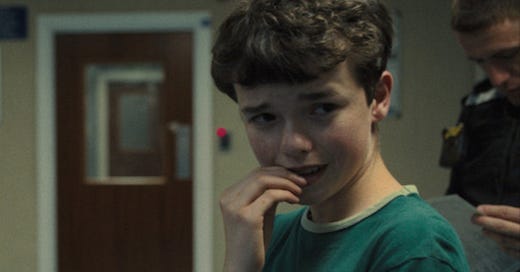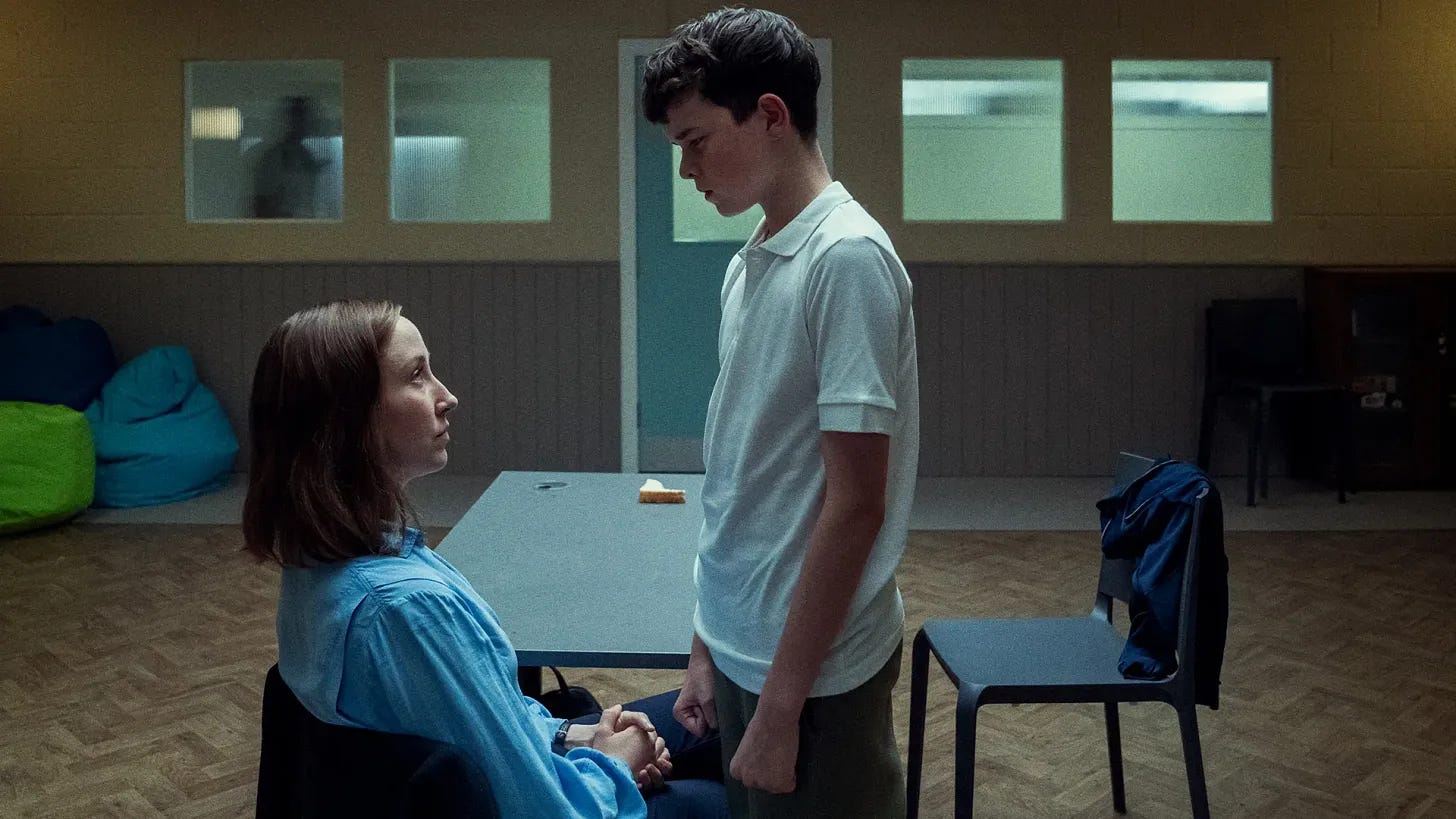#56 Why Adolescence Is the Netflix Drama Everyone’s Talking About
And why Christians can't just ignore it
If you haven’t heard about Adolescence yet, you soon will. Every so often, a cultural moment breaks through the media noise and resonates deeply. This British crime drama is one of those moments. It has sparked intense discussion, centring on a 13-year-old boy arrested for the suspected murder of a girl at his school. But it’s far more than a typical crime story—it’s an unflinching exploration of how a single tragedy ripples through a family, a school, and an entire community.
Trigger warning: I don’t usually comment on what people should or shouldn’t watch—everyone has their own perspective on what they find appropriate, and I fully respect that. If you're unsure, a good starting point is Common Sense Media, which rates Adolescence as containing very mature themes, including strong language, murder, and discussions of teen relationships. It is not for everyone. Even if you haven’t watched it or don’t intend to, you’ve probably heard the conversations happening both online and offline. It’s a show that refuses to be ignored right now.
Told through four immersive, one-shot episodes, Adolescence doesn’t just tell a story—it drops the audience right into the emotional chaos of teen violence. The tragic murder itself is only briefly seen through CCTV footage, but the emotional fallout is raw and unfiltered. The real-time, single-take approach demands flawless performances, making every reaction and conversation feel painfully real.
For all its technical brilliance, what makes Adolescence truly unsettling is how it peels back the layers of teenage culture. In my day job, I lead an organisation that works with young people, and it’s increasingly clear that they inhabit a world vastly different from the one adults think they do. The show forces us to confront an uncomfortable truth: many adults assume they understand what’s happening in a young person’s life—until they realise they don’t.
Listening to responses from those who have watched the series, it’s clear that it has shaken people. Many are grappling with the idea that this kind of thing would never happen in my neighbourhood. The reality is, youth culture is shifting rapidly, shaped by social media, online interactions, and digital subcultures that many adults barely comprehend.
But beyond the debates around digital connection, I think it is the disconnect between adults and teenagers that is actually at the heart of Adolescence. Parents, police, and professionals believe they know what’s going on—until they are confronted with how much they’ve missed. The show’s creators have said that, at its core, Adolescence is about reality—and how young people often have a sharper grip on it than the adults in denial around them. That’s a hard pill to swallow, but it’s a wake-up call for those of us who still think being a teenager today is anything like it was when we were growing up.
One moment in Episode 2 captures this disconnect perfectly. DI Luke Bascombe, struggling to understand the school’s social dynamics, turns to his teenage son, Adam, for help. Adam, clearly embarrassed by his dad’s ignorance, pulls him aside and explains how clueless adults are about what really happens online. He tells him about the hidden meanings behind certain emojis—like the "red pill" emoji, which signals alignment with misogynistic ideologies in the 'manosphere'. When Bascombe responds with, “Like The Matrix?” Adam looks blank—he has no idea what his dad is talking about. In that moment, the generational gap is laid bare.
I believe in the biblical idea that one generation should tell of God’s works to the next. But how do we do that when so many young people feel misunderstood, unheard, and disconnected from the adults around them? Adolescence doesn’t offer easy answers, but it does make one thing clear: we can’t afford to ignore the gap. If we as Christians want to support the next generation, we have to start by truly listening.
The show reminds us that stepping into their world isn’t optional—it’s essential. We can’t assume we know what they’re facing or dismiss their struggles as trivial. Their fears, influences, and pressures are often more complex than we realise, and they need adults who don’t just observe from the sidelines but walk alongside them.
More than ever, young people need trusted role models—those who show up, invest in their lives, and offer guidance. And just as importantly, we need to pray for them. Teenagers today are navigating a world shaped by pressures and influences that previous generations never had to face. They don’t need more condemnation—they need people who believe in them, who call out their potential, and who will stand in the gap through prayer.
When life falls apart—and for many, it does—they don’t just need advice; they need hope. That’s where Jesus comes in. He doesn’t avoid the mess of an adolescent world; He steps into it. He walks with us through the brokenness, picks up the pieces, and restores what is lost.
Adolescence is a raw, unfiltered look at the reality many young people are living in—a world where adults think they’re in control but are often blind to what’s really happening. It’s messy, uncomfortable, and forces us to ask: are we really willing to step in? Because if we want to tell God’s story to the next generation, we can’t stay in our comfort zones. We need to engage, listen, and respond—just like Jesus does.
And here’s the challenge: just like the show itself, we only get one shot at this. In Adolescence, every episode is filmed in a single, unbroken take—no edits, no do-overs, no second chances. That’s real life too. We don’t get to rewind and try again when it comes to raising, guiding, and supporting the next generation. This is it. The moment is happening, the camera is rolling—will we step up and be there for them?








This goes further than just the disconnect between adults and teenagers.
This is also about the growing misogyny trend that is plaguing the world. With social media celebrities such as Andrew Tate and his manosphere idea being idolized by teenage boys.
The one-shot filming drew me in, but the powerful story is what kept me watching.